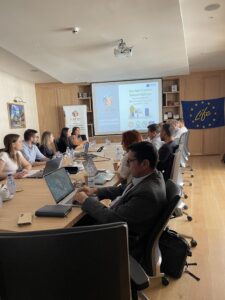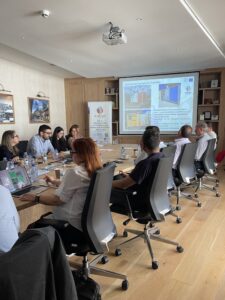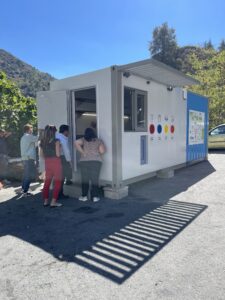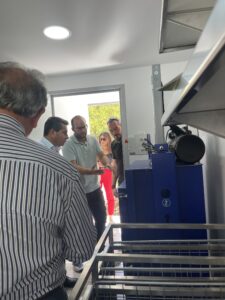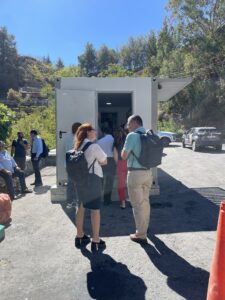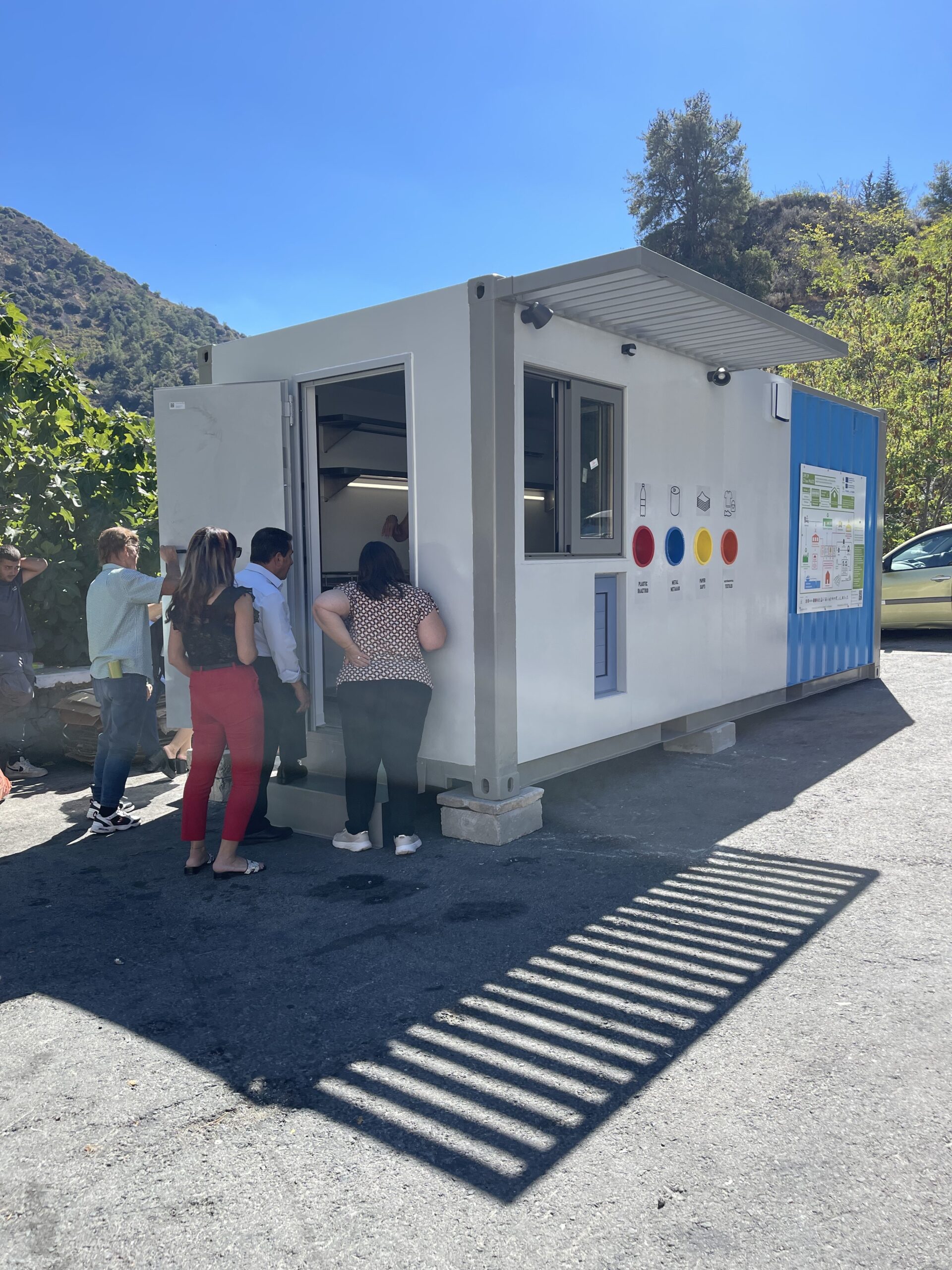On October 2, 2024, the first seminar under Action C9 of the LIFE IP Zero Waste Cyprus Project, entitled “Capacity Building Activities”, was held, aiming to train key stakeholders in the operation of the Green Kiosks. Specifically, the seminar was attended by representatives of the Nicosia and Troodos Development Agencies, who are responsible for recruiting the staff to operate the Green Kiosks, as well as the Community Leaders of Agrokipia, Farmaka, Palaichori Morphou, Mammari and Kalopanagiotis, where Green Kiosks have already been installed.
The seminar had a dual purpose:
- To provide participants with both theoretical and practical training so they can transfer the acquired know-how to newly hired staff, and to coordinate and promote public awareness campaigns, thereby enhancing the active participation of local communities in the separate collection of recyclable materials.
- To provide participants with the opportunity to express their concerns, discuss potential solutions and make recommendations for optimizing the operation of these facilities.
The seminar was structured in two main parts. In the first part, representatives of the Department of Environment presented information on the siting of the Green Kiosks and the expected outcomes from their installation and operation, highlighting their contribution to achieving European and National recycling and reuse targets. Subsequently, representatives of the National Technical University of Athens provided a detailed explanation of the Green Kiosks’ operation, first presenting the categories of recyclable materials that citizens can deposit at these small sorting centers, and then explaining the responsibilities of the staff who will operate them. These responsibilities include the sorting and visual inspection of materials, weighing and data recording and public awareness activities.
At the end of the first part, participants discussed issues related to the operation of the Green Kiosks and presented proposals for improvement. Suggestions included examining the possibility of placing external bins to address potential fullness of the internal ones and to accommodate larger items than the existing shaped holes (located on the front face of Green Kiosks) increasing the daily presence of operators, installing special containers for liquid collection under the plastic bin and creating additional informational material on the proper disposal of single-use packaging.
In the second part, participants visited the Green Kiosk in the Agrokipia Community, where the contractor responsible for the supply and installation of the Green Kiosks trained them in the use of the facility’s equipment, specifically the operation of the baler and the scale.
The seminar emphasized the importance of transferring knowledge from key stakeholders to the staff who will operate the Green Kiosks, not only to ensure the smooth functioning of the infrastructure but also to enable the staff to guide citizens on source separation and proper sorting of materials. Particular emphasis was placed on the role of Community Leaders, who are responsible for informing their communities about quantitative and qualitative results and provide incentives to increase participation. Community acceptance of the initiative depends on the visible value and benefits it offers. The success of the action is critically dependent on the cleanliness of the facilities, both inside and out, as well as on the proper communication regarding the utilization of the collected recyclable materials.
